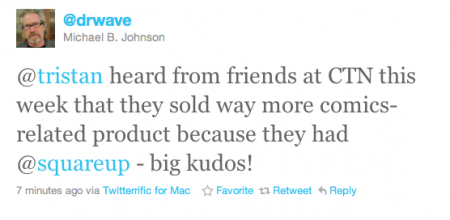Digital Circle was a project funded under the Collaborative Network Programme, run by InvestNI under the European Regional Development Fund. The project started in April 2008 and I got the job in August of that year. The project officially ends at the end of March 2011, giving me two months and a bit to tie up loose ends and reports.
While I think the last two-and-a-half years have been good, it’s been a series of ups and downs; mainly due to a schizophrenic set of reporting lines and objectives. It is difficult to reconcile the needs and wants of three distinct masters. I do believe the impact of the Digital Circle project (and more specifically, my work) has been very positive for a few companies but I am aware that a lot of companies didn’t get a lot of out of it. In the end we had limited resources and also, to be honest, I could only work with companies who worked with me, companies who wanted my help.
Digital Circle has served as a single contact point for the industry, it gave some companies something to rally around. There were (and probably are) a lot of people who didn’t know what Digital Circle was for, just as there are a lot of people who don’t know what Momentum is for, or what UNISON or trade unions are for. We want to keep work here so it’s important to use local talent where you can, it’s important for the development of skills to communicate your needs and it’s important we capture and dole out any incoming work in a fair manner. This all happened.
Digital Circle served as the initial funder for local events in many cases. While BarCampBelfast I was funded by Mac-Sys Ltd, Digital Circle provided the first funding for BarCampBelfast II and III. It funded CreativeCamp I and II. It provided a hefty amount of money to get BUILD started. It was a sponsor of the Cinemagic Festival, of Planzai’s SXSW preparation blueprint and is a sponsor of the SXSW 2011 trip itself. As the project ends, so does that avenue of funding for ‘making things happen’.
Digital Circle served to lobby for the industry. Not entirely successfully, I admit, but we have a burden of proof when dealing with government agencies and politicians and the fragmented nature of industry actively prevents identification and labelling. We needed to find everyone before we can ask them questions and I don’t believe we’ve found everyone. Getting everyone to fill in a questionnaire is a task I have ahead of me. We were successful, I believe, in changing some opinions as we barged our way onto consortia, met with the right people in colleges and universities and fought on behalf of our members for funding.
I think we did some really good things. We created some networks for people to hang their hats and brought people into the community. We attracted the attention of some really amazing guys (Thanks, Tim, David) and we used them to advise our local startups. We can always do with more help, obviously, and I’ve put a lot of people in touch with our locals – all about creating opportunity.
Digital Circle is about to launch a new web site, funded by DCAL under the Creative Industries Innovation Fund, it’ll replace the current NING site with something that permits membership, the appropriate representation of professionals within the field, the opportunity for businesses to showcase their work and a more centralised forum system. It’s being developed by ‘Rumble Labs & Dave Rice’, folk I have immense respect for.
But how to move forward with Digital Circle is something I can’t necessarily do alone. I’ve been very lucky to have some great helpers and directors including the original steering group (Adrian, Davy, Russell, Gerard), the second group (Adrian, Davy, Aidan, Andy, Kev, Marty) and the latest group (Mary, Martin, Ian, Alan, Ryan and the co-optees Rory, Aidan, Mark). I’ve also been very lucky to have great support from within InvestNI as well (Thanks to Glenn, Stephen, Linda, Pat, Martin, Terry, Alastair, Cheryl, Noyona, Lisa, Bob, Michael, Paul, David and a host of others). There’s a lot of love for the Digital sector within InvestNI – they know that this sort of knowledge economy is the future but it still falls to us, those who work in the sector, to stand up and identify themselves so we can gather the proof we need.
I look ahead with a sense of trepidation but also of hope and wonder. I’m not entirely sure what I’m going to do next. I received a stern talking-to this afternoon regarding my long-mentioned new startup plans. My reluctance comes from my previous role in Infurious, a company I originally founded with my best friend, Aidan. Circumstances were not ideal and eventually Infurious turned from being a product company into a software contracting company. That wasn’t what I wanted and my position in the company conflicted directly with my Digital Circle work – I knew which was more important to me (at the time) but in hindsight I wish I had taken more of a stand back at the start and done more to assist Aidan especially in the area of raising money. It’s something I’ve never done and, to be honest, it scares the bejasus out of me. As someone said to me, “Raising money is easy. Delivering to your investors what you promised is hard”.
Being involved in Infurious was a lot harder than running Mac-Sys Ltd. With Infurious, I wasn’t really involved in the creation of the product except very peripherally. With Mac-Sys Ltd, I was the product. With that level of control comes a lot of confidence. That’s something I find hard to find with a software business. I know there are cool things I want to help build, but finding the right people to build them and finding money to pay them is hard.
I’ve worked with mentors now for nearly two years and I still don’t feel like I have the confidence to walk alongside some of the folk I mention above. I wish I’d listened more and worried less. It pains me that I don’t really understand what preferential shares are or really how to negotiate a convertible loan – that the idea of arguing for good terms on the term sheet is something that fills me with dread. I want to start something but being pre-product (never mind pre-revenue), it may require an amount of chutzpah* and moxie* that I simply don’t have. Yet.
I think that 2011 may have to be the year that I, as Marty delicately put it, “Fucking walk the walk rather than just talking the talk”. I never claimed to have done it but I loved helping others go through the process. I was never a mentor, but loved finding them.
The title of this blog post is therefore 100% aimed at myself and not the brave souls who are already Just Fucking Doing It.
*I love these words.

